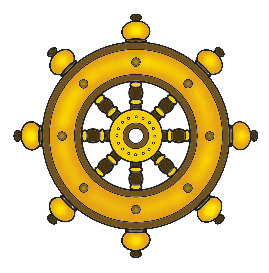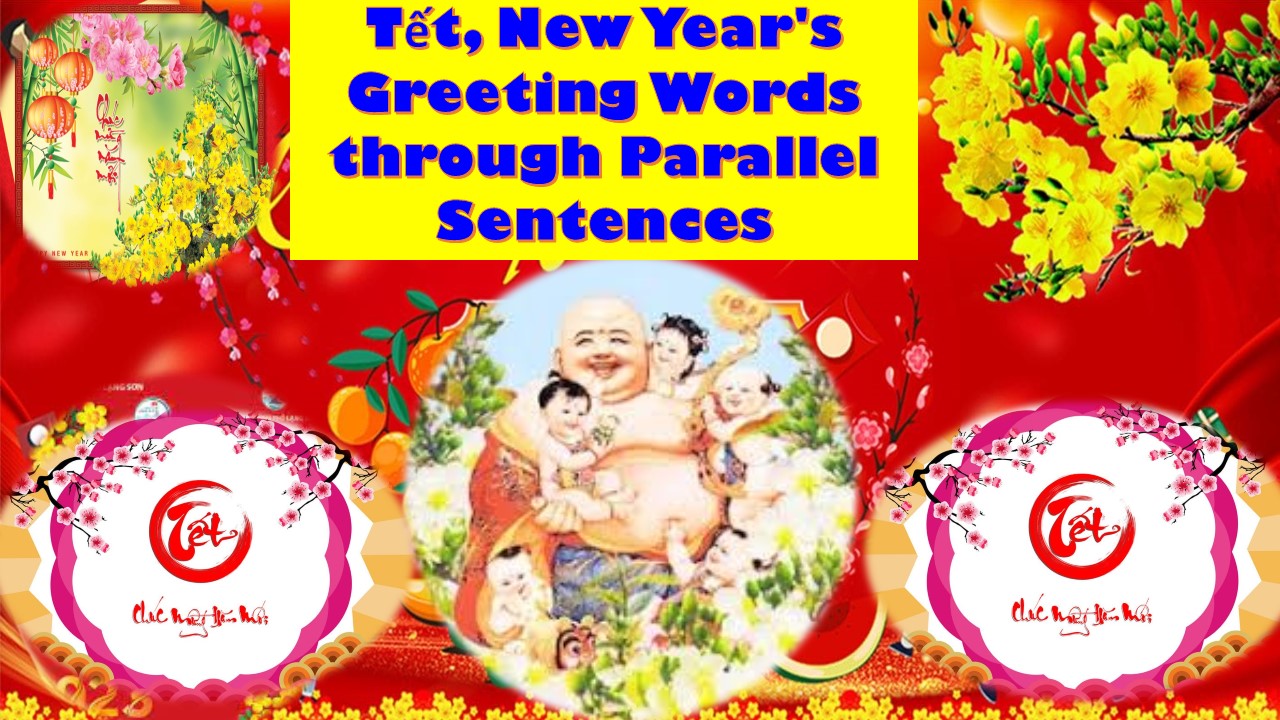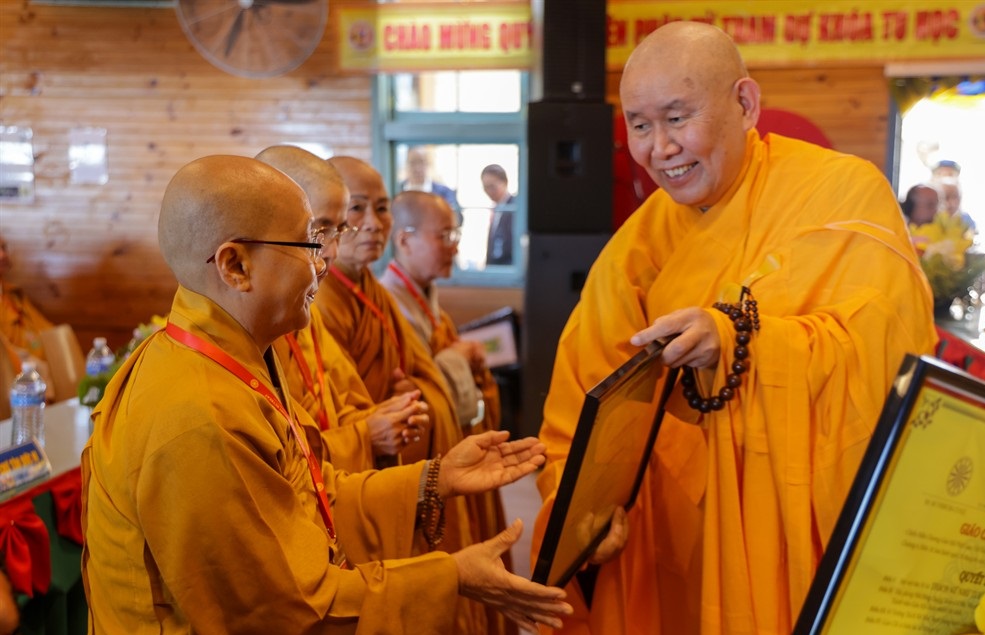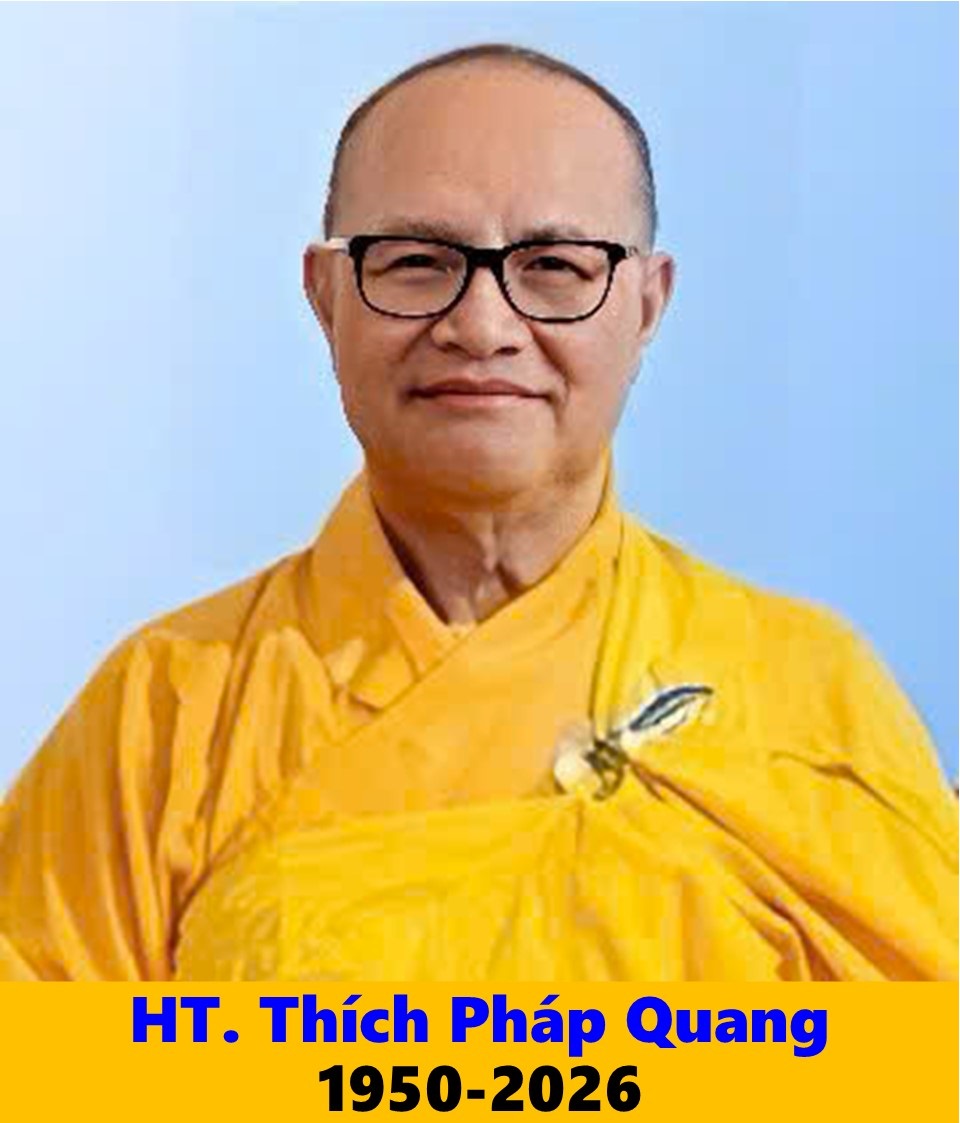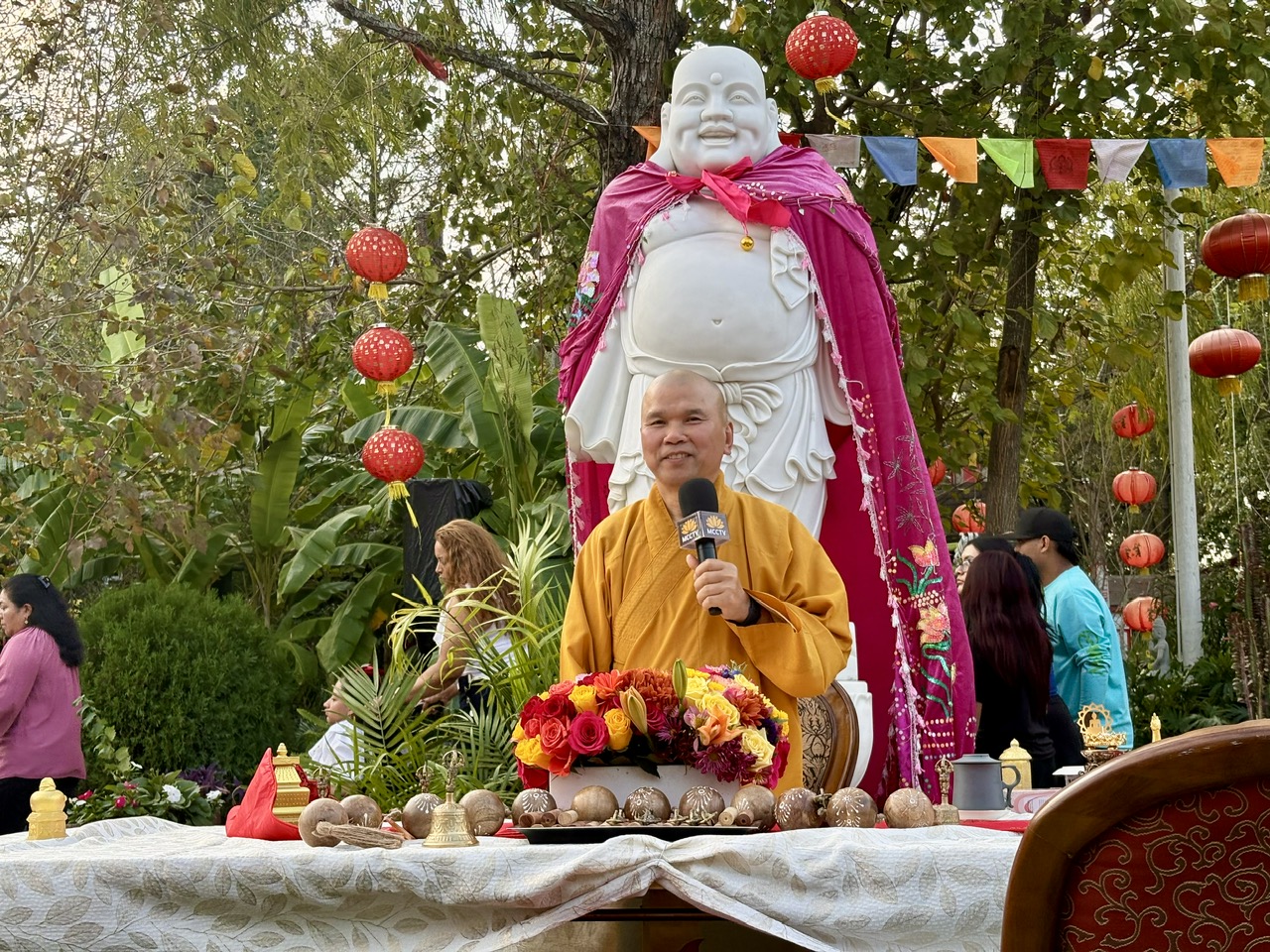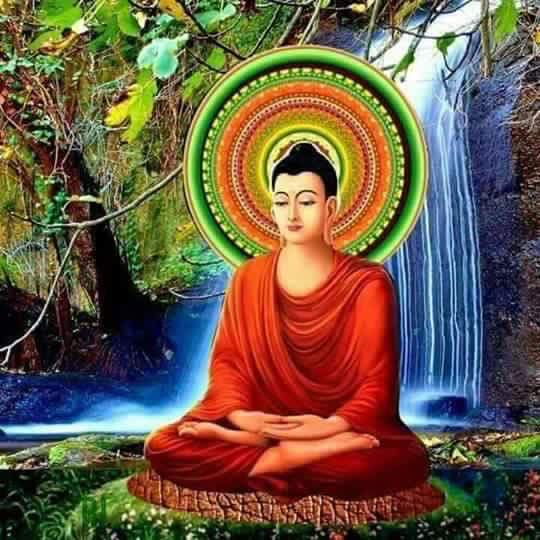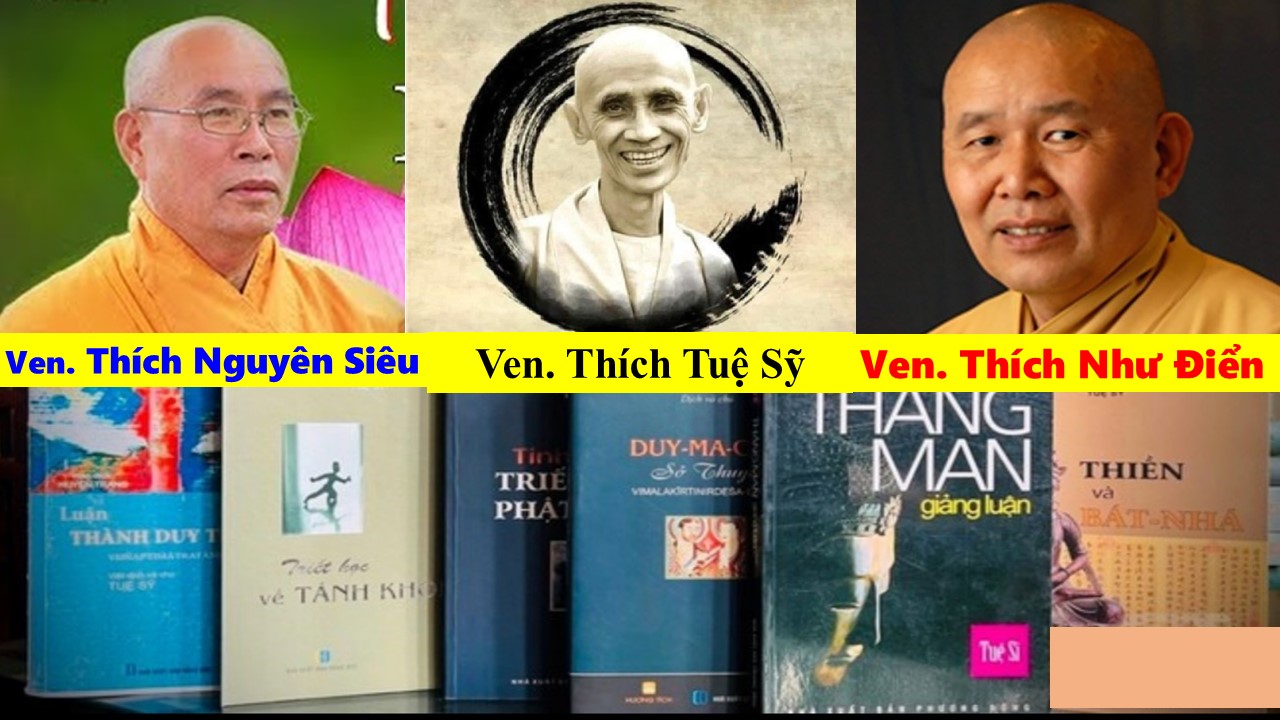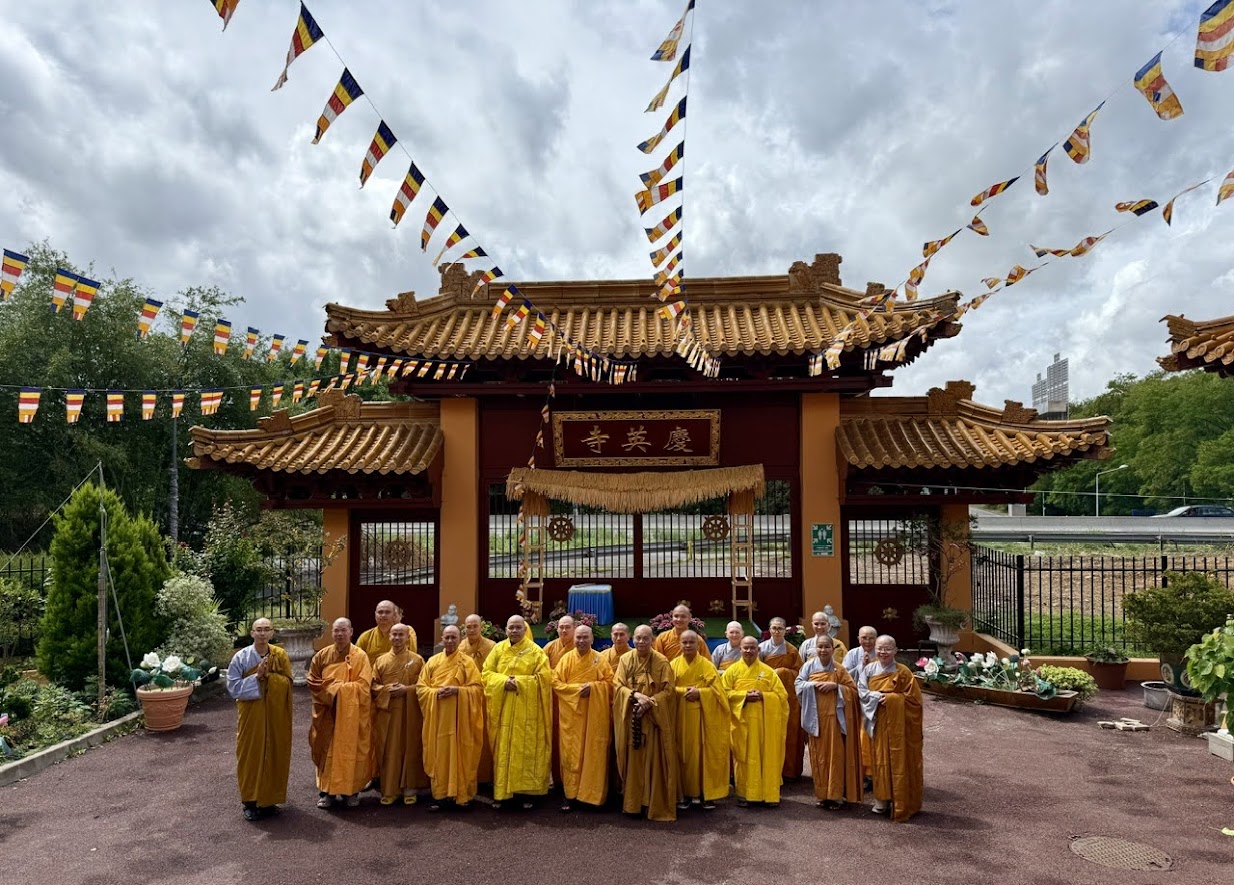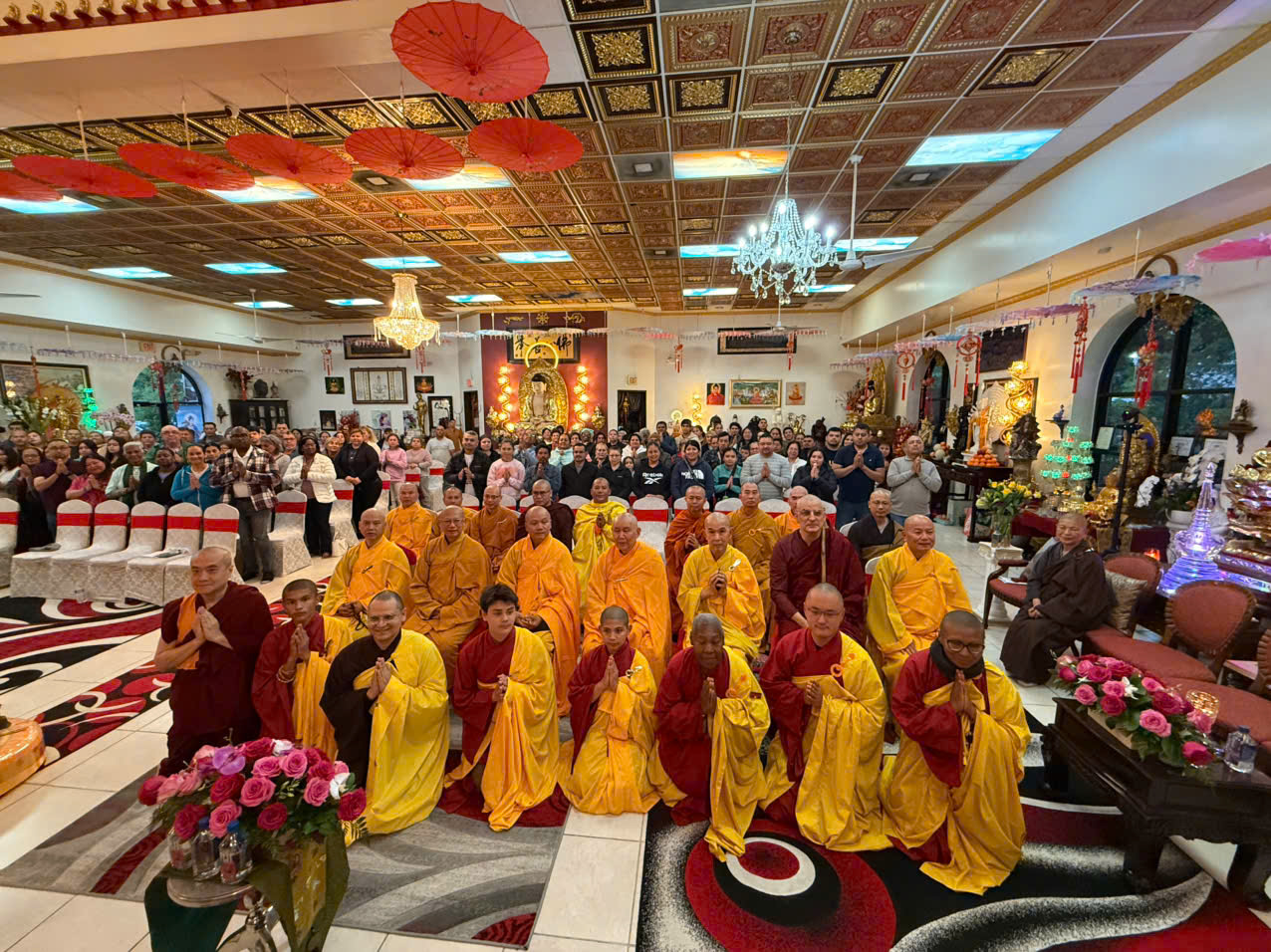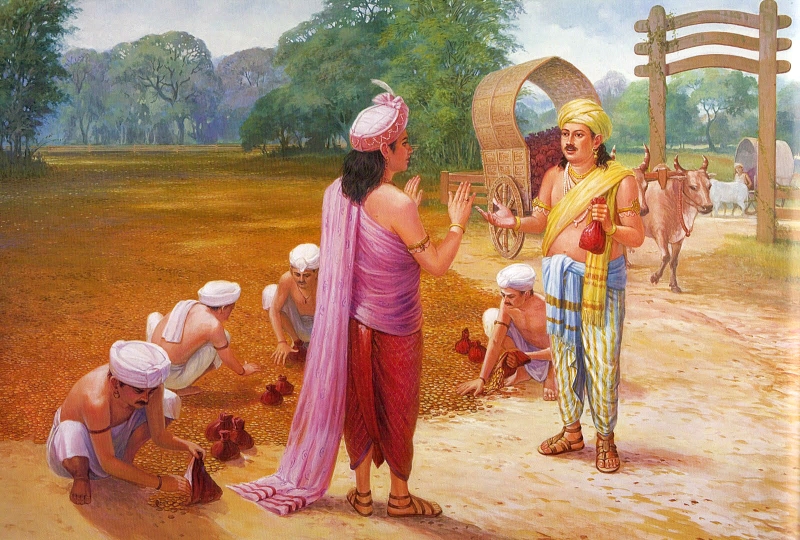
General Introduction
Anathapindika (Pali: Anāthapiṇḍika; Sanskrit: Anāthapiṇḍada), his real name is Sudatta, the wealthiest merchant and banker in Savatthi during Gautama Buddha’s time.
He was considered the main male patron of the Buddha and his Sangha at that time. Anathapindika founded Jetavana Monastery in Savatthi, considered to be one of the two most important temples at the time of the historical Buddha, the other is Migāramātupāsāda.
https://www.youtube.com/user/Hoatraituhoc/videos
You are cordially invited to watch the Vietnamese and English Bilingual Lectures
Anathapindika was born into the wealthiest merchant family in Savatthi with the birth name Sudatta, and a relative of Subhūti, one of the main disciples of Buddha. With great love, Anathapindika is “almsgiver (piṇḍa) for the poor, homeless, unprotected (anātha).”
Anathapindika met the Buddha while on a business trip in Rājagaha. After hearing his brother-in-law told about the Buddha, Anathapindika attained sotapanna, the first holy stream-enterer.
Biography
Early life and family
Anathapindika was born with the given name Sudatta and was the son of a wealthy merchant named Sumana. He was a relative of Subhūti, who would later become one of the chief disciples of the Buddha, who was foremost in being worthy of valuable gifts.
When Sudatta grew up, he married a woman named Puññalakkhanā, the sister of a wealthy merchant in Rājagaha.
Sudatta was known as a generous philanthropist right before he officially became the Buddha’s lay disciple, and was known to the public as the nickname “Anathapindika,” or “one who gives alms to the unprotected,” because his love has given away, but he never thought to regain it. Anathapindika had one son, Kāla, and three daughters, Mahā-Subhaddā, Cūla-Subhaddā and Sumanā. His daughter-in-law was Sujātā, the youngest sister of his female counterpart, Visakha.
Time to meet the Buddha
Buddhist Texts describe Anathapindika’s first encounter with the Buddha as being in Rājagaha. While on business, Anathapindika went to visit his brother-in-law, who was already a follower of the Buddha.
When he arrived at his brother-in-law’s house, he noticed that the household was preparing for an elaborate feast, and mistook it as preparation for a wedding or a visit from the king.
When Anathapindika asked about the preparations, his brother-in-law explained that they were preparing for a visit from the Buddha (the fully Awakened or Enlightened One) and his Sangha. Upon hearing this, Anathapindika became overjoyed, exclaiming “You mean that a fully enlightened person had been present in the world?,”and immediately resolved to go meet him.
The following day Anathapindika diligently got up early to go to meet the Buddha. As soon as he arrived at the monastery, he suddenly heard a call for Sudatta, his birth name. He thought, “The person who is calling me is the Buddha, the fully enlightened One.”
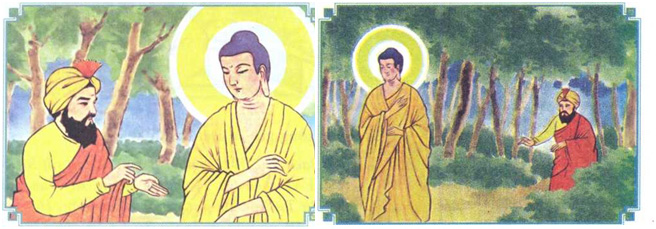
When Anathapindika met, bowed to the Buddha, sat to one side, and invited the Buddha to speak the Dharma. By the way, the Buddha said the Four Noble Truths to Anathapindika, who had attained the first saintly fruition – Sotapanna right after listening to the Dharma.
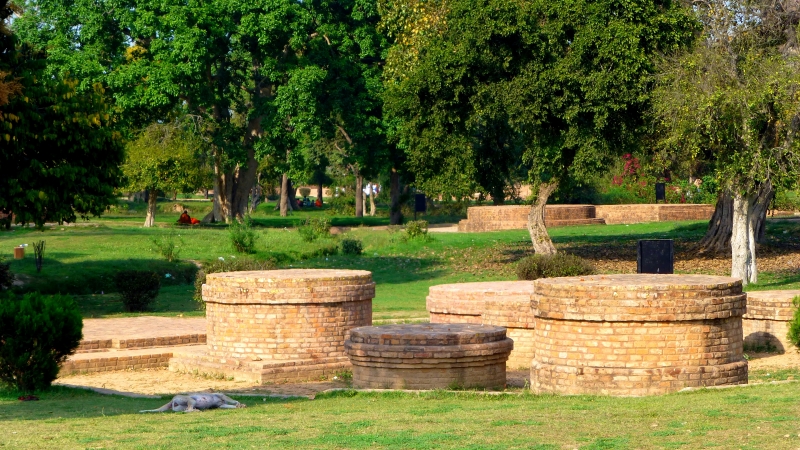
Finding, buying the land, building a Jetavana Monastery to make offerings for the Buddha and the Sangha
Following Anathapindika’s next encounter with the Buddha, he would like to express his happy heart to invite and offer the Buddha and the Sangha a meal, which the Buddha accepted, and then he happily developed his mind to build and make offerings to a monastery for the Buddha and the Sangha right in his hometown of Savatthi, to which the Buddha agreed.
Shortly after, Anathapindika went back to Savatthi to search for a proper place to build the monastery. Looking for the place that was both accessible and close to those who learn and practice the Dharma, and tranquil for the Buddha and the Sangha, he came across a park belonging to Prince Jeta, the son of King Pasenadi of Kosala. Anathapindika offered to buy the park from the prince but the prince refused.
After Anathapindika persisted in requesting the prince, the prince said, “I will sell you the park if you cover it with gold coins.”
The Prince said so in order that Anathapindika could not afford it. But with the devout mind and Triple Gem protection strongly, when hearing what the prince said, Anathapindika agreed to but it by asking people to cover gold coins on the ground.
The consent, acceptance, and determination of Anathapindika made the prince extremely surprised and admired his sincere devotion to the Buddha, the fully enlightened One in this world.
The enthusiastic work of the Anathapinkida businessman deeply inspired Prince Jeta.
After the gold coins were spread almost on the ground, the trees and the rest of the land, to contribute and create more merit, the prince offered the tree and the part of the ground not spread the gold coins yet, suggested to build the walls around the monastery, and used available wooden trees to make gates for the monastery.
Afterward, Anathapindika spent several million more gold coins building the monastery and decorating its furnishings. According to German Pali scholar Hellmuth Heckler, businessman Anathapindika eventually spent about three-fifths of his total fortune purchasing the land and building the monastery named Jetavana (literally “Jeta’s Wood”).
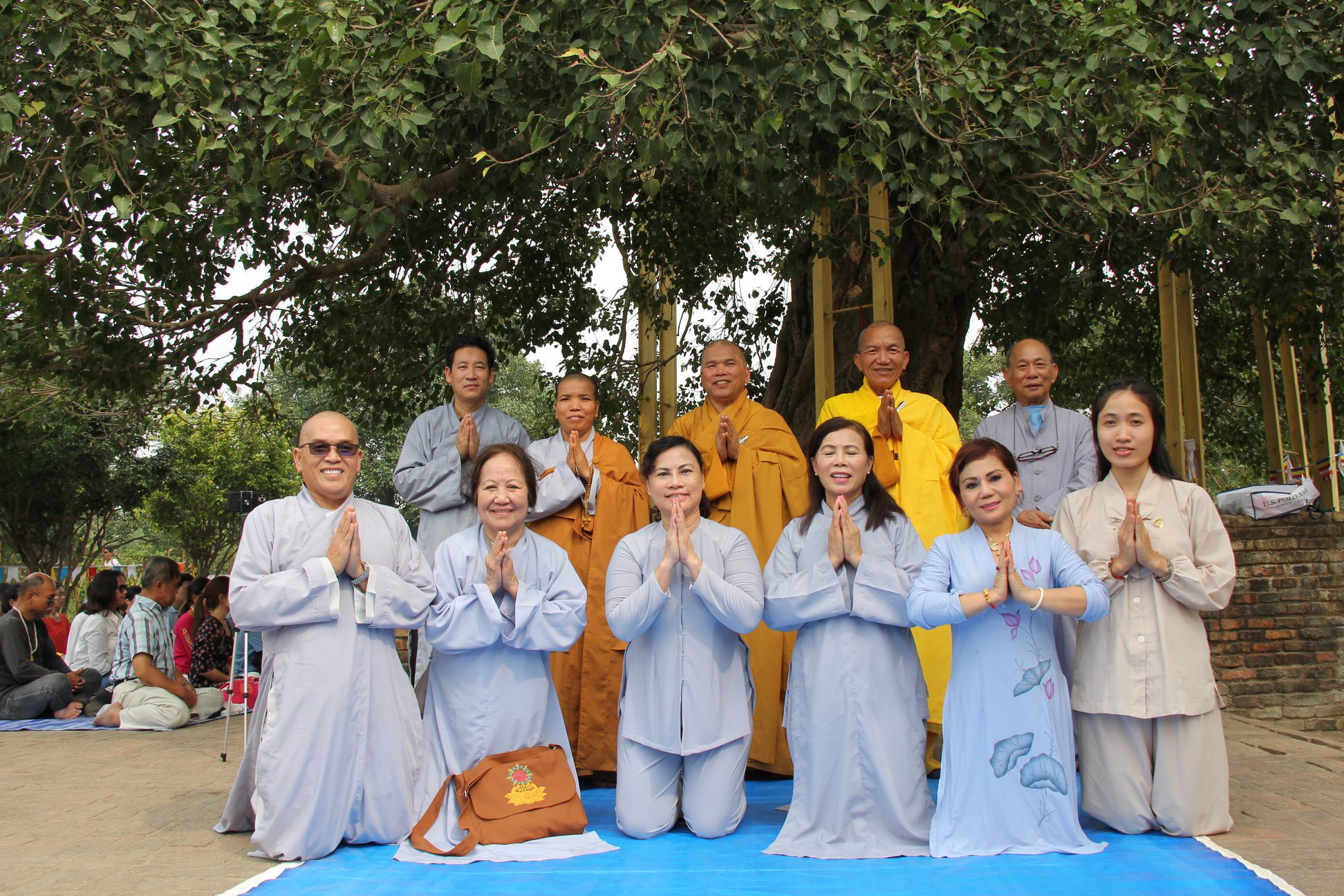
In Buddhist scriptures, the monastery is often referred to as “Anathapindika’s Monastery in Jeta’s Wood.”
Both prince Jeta and Anathapindika were two great benefactors of the Buddha and the Sangha at that time.
Chief Patron
Along with the female patron Visakha, Anathapindika was not only a chief patron protecting the Dharma strongly for the Buddha and the Sangha, but also a person did the top charity for those who were lonely, poor, unprotected, and shelterless.
He regularly sent items of offerings including food, drinks, medicine, robes or clothes, and daily supplies to the Buddha and the Sangha whenever they were at the monastery or went for alms at his home.
When he was away, he asked his family members to offer the items of offerings to the Buddha and the Sangha.
Whenever the Buddha was in Savatthi, Anathapindika would visit him twice a day. Every time he met the Buddha, Anathapindika listened to the Dharma talk from the Buddha, and made vows to practice the five fully ethical things.
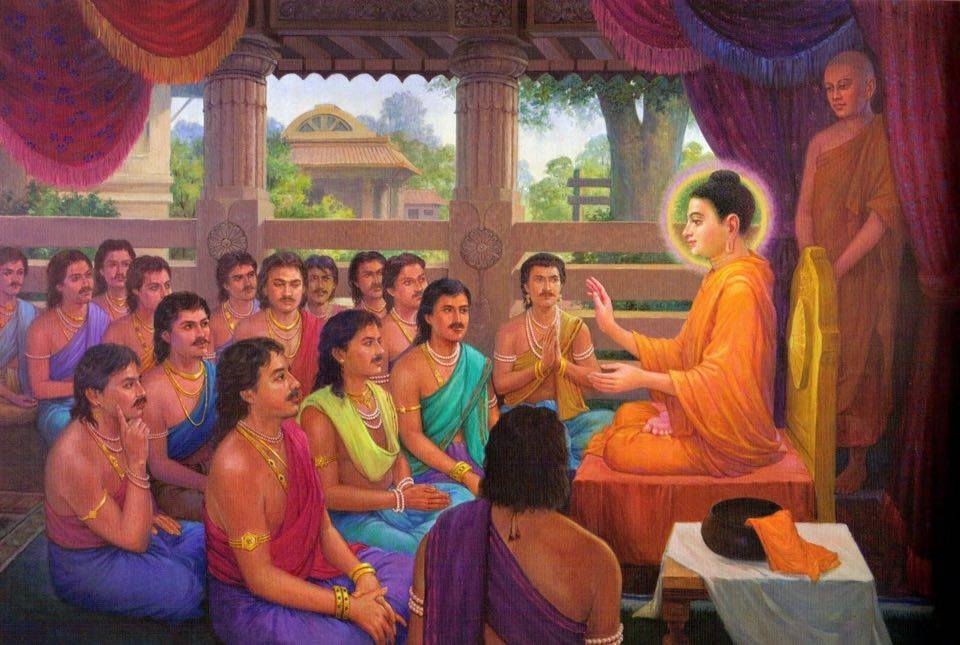
He then invited and encouraged his family, friends, employees, and many people to do the same as he did.
Anathapindika was very fluent and knowledgeable about the Buddhadharma, and also an excellent debater. Buddhist scriptures describe a time when he visited a Temple of another religious tradition and a debate ensured, Anathapindika skillfully defeated the followers of the other religious traditions.
Anathapindika and Visakha were not only the greatest patrons, but also the primary aids for the Buddha and the Sangha when interacting and dealing with the general public.
Whenever the Sangha were slandered and humiliated, one of these two lay disciples directly contacted the local authorities to resolve everything thoroughly and clearly to bring peace and tranquility to the monastery place.
Encounter with the Earth Spirit
According to texts, at one time, Anathapindika lost a significant amount of his fortune in a flash flood which washed away large amounts of his gold, and was reduced to poverty due to his love of giving as well as due to lending out large amounts to his friends.
Despite this, Anathapindika continued his patronage and support of Buddhism, although more modestly. It is said he later returned to his wealthy status, however, due to the help of a deva, or a spirit.
Based on stories recorded from the Buddhist scriptures, there was a deva living in Anathapindika’s house at the time. According to the laws of his realm, the deva had to leave his abode whenever the Buddha or a monk was in the house, as a form of respect.
Annoyed by this, the deva appeared before Anathapindika and suggested he (should) preserve his remaining treasure and stop his patronage of Buddhism since he was no longer wealthy.
Appalled by this suggestion, Anathapindika explained that the only remaining treasures he knew were to make offerings to the Three Jewels; the Buddha, the Dhamma, and the Sangha, and that he would continue to support Buddhism untill the last breath in his life.
Anathapindika then ordered the deva to leave his house, stating that the deva was a person who was not welcome and did not respect the Buddha, forcing the deva to find a new place to live.
The homeless deva went to several authorities, eventually reaching Sakka, the king of the devas in Trāyastriṃśa, who suggested he must atone by retrieving Anathapindika’s lost gold, convincing his debtors to repay their debts, and by giving Anathapindika a buried treasure, which had no owner. This resulted in Anathapindika returning to wealth, even richer than he was before.
The Story of Kalakanni
One famous story described in the Buddhist scriptures is the story of Kalakanni. Kalakanni (whose name means “unlucky bird”) was a childhood friend of Anathapindika who was impoverished.
When Kalakanni asked Anathapindika for aid, the setthi offered unlucky bird a job at his house. This decision was met with backlash from Anathapindika’s household, due to Kalakanni’s low status and the superstition at the time of Kalakanni’s name being a bad omen.
Anathapindika ignored this superstition and unlucky bird’s status however, and granted his friend a job.
This eventually worked in the favor of the household however, when a group of thieves attempted to rob Anathapindika’s property while the businessman was away on a business trip.
When the vigilant Kalakanni noticed the thieves, Anathapindika’s unlucky bird friend began making loud noises to notify the thieves that there were people in the family and cause them to leave.
Anathapindika’s Death
At the age of late afternoon, Anathapindika’s health was not strong enough anymore. when becoming ill, Anathapindika was visited by the two venerable Sariputta and Ananda, two of the principal disciples of the Buddha.
Venerable Sariputta delivered a sermon, advising Anathapindika to focus on letting go of his mind from attachment and grasping and to contemplate life as impermanence by inviting Anathapindika to repeat as follows:
Namo Buddhaya
Buddhaṃ saraṇaṃ gacchāmi
Dutiyampi buddhaṃ saraṇaṃ gacchāmi.
Tatiyampi buddhaṃ saraṇaṃ gacchāmi.
Namo Dharmaya
Dhammaṃ saraṇaṃ gacchāmi.
Dutiyampi dhammaṃ saraṇaṃ gacchāmi.
Tatiyampi dhammaṃ saraṇaṃ gacchāmi.
Namo Sanghaya.
Saṅghaṃ saraṇaṃ gacchāmi.
Dutiyampi saṅghaṃ saraṇaṃ gacchāmi.
Tatiyampi saṅghaṃ saraṇaṃ gacchāmi.
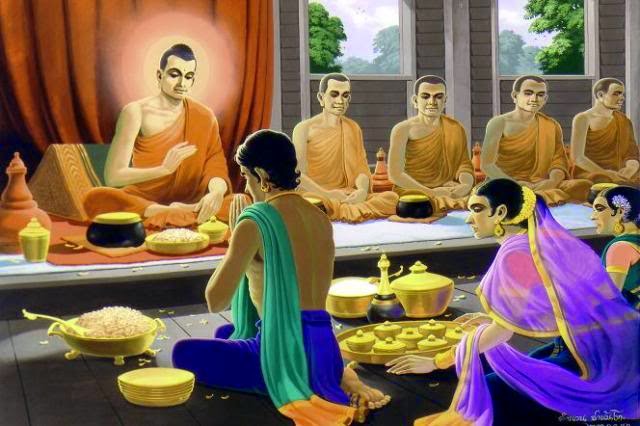
“I take refuge in the Buddha, the One who shows me the way of loving-kindness, compassion, and wisdom in life.
I take refuge in the Dharma, the path of practicing peace, joy, happiness, love, and understanding.
I take refuge in the Sangha, the Community of cultivated people who vow to live their lives of ethics, harmony, and awareness for the many right in the present life.”
“These eyes are not mine, I do not cling to them.
These ears are not mine, I do not cling to them.
This nose is not mine, I do not cling to it.
This tongue is not mine, I do not cling to it.
This body is not mine, I do not cling to it.
This mind is not mine, I do not cling to it, etc.”
After listening to the Dharma talk by Venerable Sariputta, Anathapindika was deeply moved and bursted into tears. At that time, Venerable Anada asked why he was crying.
“I cried because I felt the Dharma discourse was so profound. I would like to invite the two Venerables to tell the Buddha, we the lay disciples should regularly be heard such Dharma talks to help our bodies and minds get peaceful and happy right in the present life, Anathapindika replied.
Afterward, the two Venerables happily accepted his requests and left. Shortly after Sariputta and Ananda left, his family members said Anathapindika passed away quietly and peacefully.
According to Buddhist scriptures, Anathapindika was reborn as a deva in Tusita heaven, where he met female counterpart Visakha and Sakka, the king of Tavatimsa heaven.
Legacy
Anathapindika is considered to be one of the most exemplary adherents of the Buddhist virtue of generosity. Not only did he regularly provide alms to the unprotected poor and necessities to the Sangha at Jetavana, he invited hundreds of monks and nuns to go to his residence to make offerings to the daily meals to them happily.
When referring to Anathapindika, the Buddha said that for one who was dedicated to perfecting the virutes of his generosity, nothing in the world is capable of preventing him from almsgiving and Triple Gem protection.
Anathapindika’s love of giving, combined with some misfortune, sometimes led him to poverty. Even in times of meeting material and economic difficulties, Anathapindika continued to patronize Buddhism, although his patronage was not as much as before. However, his wealth restored was thanks to the power of the merit of almsgiving, offerings, and the right confidence to Threefold Jewel protection.
One who does charity and almsgiving is like one who has a bright light transmits his light to many people who are shining together, his light is not dimmed.
The protection of the Triple Jewel and the patronage of Anathapindika had a very great influence on Buddhism during the Buddha’s time. Savatthi, the hometown of Anathapindika, was considered to be the very important center of spiritual practice and Buddhist development at an early stage, and was the place where many sermons were taught to the Sangha by the Buddha at that time.
More than any other monastery, during the 45 years of spreading the Dharma, it is Savatthi where Buddha spent 19 raining seasons at the Jetavana Monastery.
Migāramātupāsāda monastery was patroned by female benefactor Visakha. Jetavana monastery was patroned by male benefactor Anathapindika.
Both these monasteries were in Savatthi. At Migāramātupāsāda, spending 6 raining seasons of Retreat, at Jetavana, spending 19 raining seasons of Retreat, the Buddha frequently went back and forth to these two monasteries to deliver Sutras and teach the Dharma to the Sangha when he stayed in Savatthi.
Triple-Jewel protection of Anathapindika and Visakha inspired king Pasenadi, one of the most powerful kings of that time, became the Buddha’s lay follower, supported the Sangha, and patroned Buddhism very effectively. In order to maintain the Three Jewels wholeheartedly effectively, when a fully enlightened Buddha appears in the world, he always has chief disciples that fulfill different roles.
On top of the pairs of monastic disciples as well as lay disciples of Gautama Buddha, For his chief monastic disciples consisting of:
The two chief female Arahant disciples are Sariputta and Moggallana.
The two chief male Arahant disciples are Khema and Uppalavanna.
For his chief lay disciples consisting of:
Anathapindika is the chief male patron and Visakha is the chief female patron of the Gautama Buddha.
Conclusion
Via what we learned and discussed above, we know during the Buddha’s time, he transformed and helped not only kings, religious leaders, intellectuals, etc., but also rich entrepreneurs, businessmen, and merchants of loving-kindness, compassion, and wisdom in the spirit of serving the Dharma and human beings bringing Buddhism into life very valuably, usefully, and practically right in the present life.
Referring to the websites
https://www.budsas.org/uni/u-capcodoc/capcodoc-00.htm
https://www.accesstoinsight.org/lib/authors/hecker/wheel334.html
https://en.wikipedia.org/wiki/Anathapindika

